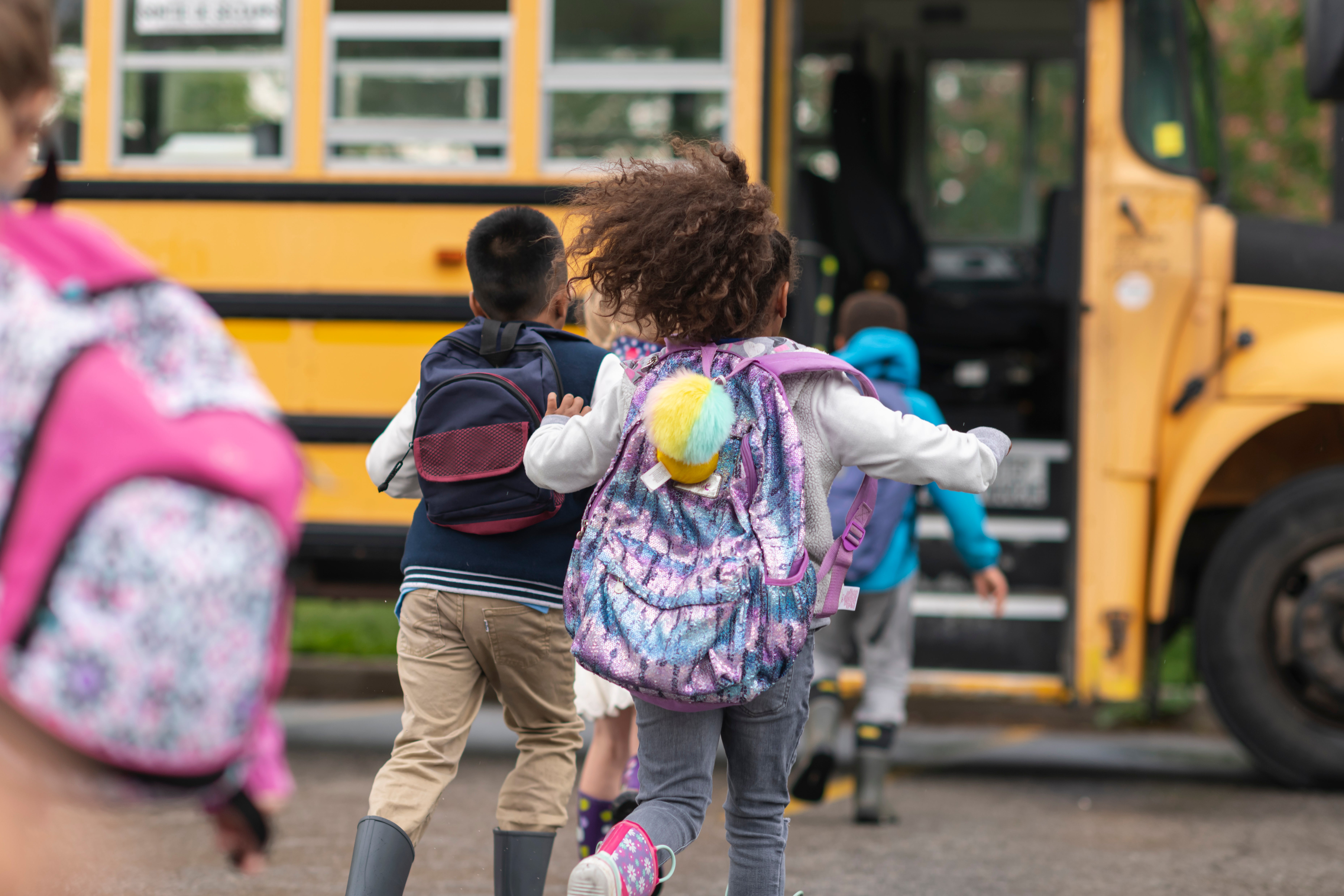

As summer winds down and classes begin for students, families may need to make some changes around their households to help children make the back-to-school adjustment. Brandon Rawlinson, D.O., who specializes in family medicine at Utica Park Clinic - Owasso North, has these six tips to help keep students healthy and productive during the upcoming school year.
1. Establish a routine
After a summer of outdoor fun and potentially later bedtimes, getting back into a regular school schedule can be a challenge for some families. Dr. Rawlinson said getting started early is the key.
"Having three kids myself, I've noticed a difference when we ease them into the school routine early," said Dr. Rawlinson. "Start practicing the routine a week or two before school starts so they can get back into the rhythm of preparing early for class."
Establishing a routine in the home environment can also help kids adjust comfortably. Having dedicated spaces in the house for homework, meals and relaxation can help students wind down after their day at school.
"Kids love structure. They may act like they don't, but they anticipate a rhythm once it's established," said Dr. Rawlinson. "Set routines for doing homework, having meals and relaxing. Ideally, you can establish a spatial routine as well; dedicate certain spaces to studying, relaxing or eating and try not to mix them for different purposes."
2. Practice good sleep hygiene
Getting a good night's sleep is key for students to be rested and energized for the school day. Encourage your kids to set a limit on screen time before bed.
"It's important to put the phone away, turn off screens and allow yourself to wind down at night," said Dr. Rawlinson. "Establishing a consistent bedtime and morning routine can also help students ease into and out of sleep every day. Melatonin can also be used if recommended by a pediatrician to help kids fall asleep and stay asleep."
3. Eat healthy, fulfilling meals
Breakfast is truly the most important meal of the day for students. Getting their metabolism started with a filling, nutritious breakfast can help keep their energy levels up during the day and help them focus in class.
"Starting the day with a full stomach after a well-rounded breakfast helps students stay alert," said Dr. Rawlinson. "Don't start the day with too much sugar; a balanced meal can provide them with energy for their day."
Dr. Rawlinson said students should aim to have a lunch high in protein and low in carbs and fat to avoid being weighed down for the rest of the day, especially if they're involved in a sport or other physical activity.
"You want your meals to be high in protein, you don't want to eat anything heavy with too many carbs or too much fat, like deep fried stuff, right before you have practice or play," said Dr. Rawlinson. "It's going to slow you down. Food is fuel, and you're a Ferrari. If you want to be a high-performance vehicle, you should eat high-performance food."
He also says caffeine can have more negative effects than benefits on a student's day and should be avoided by kids under 18.
"It's a drug, so it can affect your heart rate, your blood pressure, your focus and energy," said Dr. Rawlinson. "You can also develop a dependence on the caffeine if you're not careful."
4. Hydrate
Drinking plenty of water is important so that students can maintain focus and energy during the school day. Staying hydrated aids digestion, normalizes blood pressure, regulates body temperature and helps the body distribute oxygen and nutrients.
"Encourage your kids to keep a water bottle with them and sip on it all day, especially if they're an athlete, member of the band or do any physical activity," said Dr. Rawlinson. "Especially while it's hot, they need to replace the fluids they lose through sweat."
It is always best to drink water before exercising or spending time outside instead of trying to remedy dehydration after the fact.
5. Have a family plan for emergencies
If your student is nervous about returning to the classroom after a summer at home, it may be helpful to review safety plans with them as a family. Encouraging memorization of important phone numbers, emergency escape routes and other safety measures can help both you and your student feel at ease.
"School districts are well-equipped to handle emergencies, and most will review safety plans with students," said Dr. Rawlinson. "As parents, you should offer reassurance that most days will be totally normal. You could also contact your child's school to ensure your family plan aligns with their plan."
6. Avoid illnesses and injuries
Student athletes or students who participate in other extracurriculars like theater, choir or band should focus on technique while building their skills. Encourage them to follow advice from coaches and mentors who are trained in injury prevention and strength training to reduce their risk of getting hurt.
"Take those warm-up stretches seriously," said Dr. Rawlinson. "There's a reason for it. If they're playing a specific sport, take the time to learn the proper technique. This will help them prevent bad form, which will help prevent injuries."
To prevent illnesses, hand-washing is extremely important. Remind your students to keep their hands clean, and to also cover their mouth and nose when coughing or sneezing to avoid spreading germs.
"If the student isn't feeling well, let them come home. Find that early, because most viruses are most transmissible in those early stages," said Dr. Rawlinson. "Wearing a mask is also still an option, just to keep from spreading illnesses around."
If your student is sick, keep them at home. Take their temperature to see if they're running a fever, and seek medical attention if needed.
-------------------------------------------------------------------------------------------------------------------------------------------------------
Dr. Rawlinson welcomes new patients at Utica Park Clinic - Owasso North. To learn more or schedule an appointment, visit this link or call 918-212-7373.
